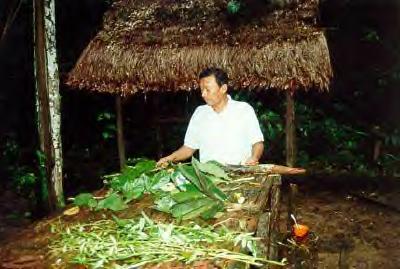|
Canku Ota - A Newsletter Celebrating Native America |
|
Canku Ota - A Newsletter Celebrating Native America |
Botanist to Speak on Rain Forest's Medicinal Plants
Adapted by Garnet 1654 from an article
By MICHAEL OVERALL World Staff Writer
Tulsa World:
Medicinal Plants from the Rain Forest
To find out more about the Rain Forest and how you can help save it visit
these sites: The Rain Forest - Index Let's Go Around the World

KIDS' CORNER: RAINFOREST ACTION NETWORK
http://www.ran.org/ran/kids_action/index1.html
http://tqjunior.advanced.org/5393/index.html
http://www.ccph.com/
![]()
|
Canku Ota is a free Newsletter celebrating Native America, its traditions and accomplishments . We do not provide subscriber or visitor names to anyone. Some articles presented in Canku Ota may contain copyright material. We have received appropriate permissions for republishing any articles. Material appearing here is distributed without profit or monetary gain to those who have expressed an interest. This is in accordance with Title 17 U.S.C. section 107. Canku Ota is a copyright of Vicki Lockard and Paul Barry.
|